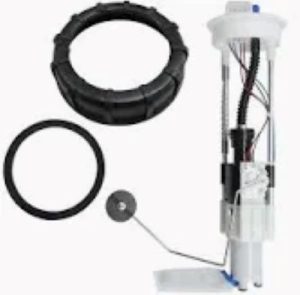A fuel pump that operates as it should is highly instrumental in maintaining quality idle by ensuring that fuel pressure and delivery are consistent. The quality of idle rests on whether or not the engine gets the right mixture of air and fuel at a steady rate-the fuel pump is supposed to feed the fuel at a controlled pressure, generally between 40 to 60 PSI for most fuel-injected engines. When the pump cannot provide this continuous flow, then the engine may run lean-with too much air and not enough fuel-or rich-with too much fuel and not enough air, both of which are imbalances in smooth idling.
The most common symptom when the fuel pump is beginning to fail related to idle quality is when an engine stalls or runs in a rough-idling manner. With high-mileage vehicles, the fuel pumps can start to wear out; thus, fuel pressure fluctuations easily set in and make the engine labor hard to maintain the required RPM at idle. Indeed, investigations have shown that as little as a 10% drop in fuel pressure can create an obvious fluctuation in idle stability, since fuel delivery turns out to be inconsistent and it affects combustion efficiency. An erratic fuel pump unable to deliver the required amount of fuel to the engine usually causes erratic idle speeds. These erratic fluctuations are very evident when one stops at lights or during heavy traffic.

Electrical problems related to the fuel pump can also be another cause of poor-quality idling. A malfunctioned electrical relay or a bad connection in wiring results in low amperage feed to the pump, which then operates intermittently or under low power. That would cause a rough idle or even stalling, in extreme cases, when the pump is unable to sustain proper pressure due to some electrical malfunction. Regular checks on fuel pump wiring and relays prevent such disruptions and ensure smooth operation at idle.
Performance of the fuel pump becomes very critical in modern vehicles with an ECM that requires stable fuel delivery to maintain precision in the air-fuel mixture. The ECM is continuously monitoring the fuel flow and making the necessary adjustments in ignition and fuel injection timing for proper combustion. Since the fuel pump does not provide constant pressure, it is hard for the ECM to control the smooth running of the engine at idle; hence, it provides poor idle quality and probably an engine misfire. They emphasize that a good fuel pump maintains the quality of idle, at the same time helping the ECM optimize fuel usage for better engine efficiency with low emissions.
It gets even worse to maintain the quality of being at idle in cold climates because at lower temperatures, the flow of fuel becomes hard. A good-quality Fuel Pump maintains a pressure rating for fuel reaching the engine without any delay in extreme conditions, too, preventing rough idles due to fuel flow restriction because of low temperatures.
The fuel pump should be reliable enough to deliver a continuous supply of fuel for the smooth idling of a vehicle. This would keep the quality of idling stable and help the overall health of the engine if its maintenance is properly scheduled in time to replace an ageing fuel pump.